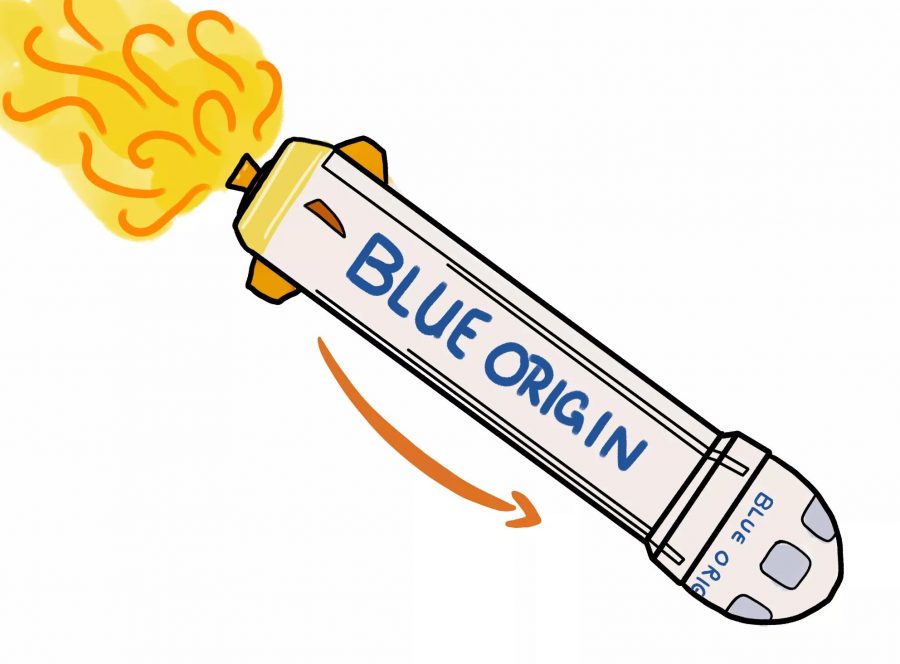Since the first time man set foot on the moon in 1969, NASA and SpaceX among other technology companies have made attempts to further advance their knowledge of space technology. Amazon owner Jeff Bezos founded the Blue Origin Company in which reusable rockets have been made possible.
“More than 500,000 pieces of debris, or “space junk,” are tracked as they orbit the Earth,” NASA’s Mark Garcia said in a blog post. “They all travel at speeds up to 17,500 mph, fast enough for a relatively small piece of orbital debris to damage a satellite or a spacecraft.”
Space debris is a massive issue as it can create a minefield for satellites and future space endeavors with each piece of debris traveling approximately the speed of a bullet. A Curious Elephant YouTube video, provided by UC Professor of Physics Ryan Miller, describes the impact that space debris has on the atmosphere.
“We don’t have many discussions about space trash and this is important with this project because we don’t have much trash due to its reusability,” Miller said. “Safety concerns with one time use rockets are common because all the trash lands somewhere, this Blue Origin Project will decrease amounts of space trash with reusable rockets.”
The Blue Origin spacecraft does not shed any large pieces while being sent into the atmosphere and in most tests it has landed standing upright as if to be sent to space again. The importance of Bezos’ reusable spacecraft is not only due to the reduction of debris but also for monetary reasons.
“The Department of Defense maintains a highly accurate satellite catalog on objects in Earth orbit that are larger than a softball,” Garcia said. “Currently, about 15,000 officially cataloged objects are still in orbit.”
With the large amount of debris orbiting the Earth and being tracked from safety reasons, more and more money is being spent. In addition, the capture and disposal of debris eats up even more funding that organizations such as NASA do not have room for.
“NASA’s funding was cut a few years back and they have yet to recover,” Senior Quinlyn Beaver said. “Regardless, when NASA does regain its footing, they will be focused on the science and technological advancements that will be necessary to establish colonies or to travel to Mars. Their focus and energy won’t necessarily be in the area of cargo transport.”
Beaver said the focus for the future will most likely be placed on the colonization of Mars. Junior Adam Mosher had similar thoughts.
“Obviously it has a huge impact on NASA because they don’t get all the attention and funding that they used to,” Mosher said in regards to the advancements of Bezos’ technology. “More and more private companies are trying to get to space and NASA can’t stop them. It’s almost like another space race.”
Students who are interested in space travel and the possibility of colonization, Bezos’ Blue Origin has created a route to that possibility.
“There are many opportunities for students to get involved in similar projects even outside of mechanical or technological engineering fields,” Miller said. “Psychology students who can observe the impact and mental effects of potential colonization and biology students who can experiment with plants and animals as well as how they react to the atmosphere will certainly be needed when the time for colonization of planets like Mars comes.”
For many students, space exploration is exciting and because there is so much unknown, new technologies, like the Blue Origin, are assisting in the locating of knowledge for the future.
“As a student I’m excited about the possibility of more space travel including possible space colonies,” Beaver said. “The technological advancements could very well help us with some of the problems we have on earth including preserving the environment and the need for clean energy sources.”


















![President Todd Pfannestiel poses with Jeremy Thurston chairperson Board of Trustees [left] and former chairperson Robert Brvenik [right] after accepting the university's institutional charter.](https://uticatangerine.com/wp-content/uploads/2023/10/unnamed.jpeg)























































































































